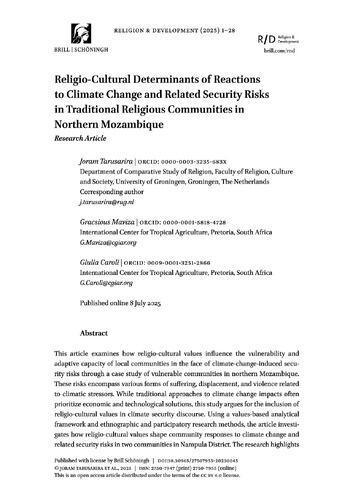
This article examines how religio-cultural values influence the vulnerability and adaptive capacity of local communities in the face of climate-change-induced security risks through a case study of vulnerable communities in northern Mozambique. These risks encompass various forms of suffering, displacement, and violence related to climatic stressors. While traditional approaches to climate change impacts often prioritize economic and technological solutions, this study argues for the inclusion of religio-cultural values in climate security discourse. Using a values-based analytical framework and ethnographic and participatory research methods, the article investigates how religio-cultural values shape community responses to climate change and related security risks in two communities in Nampula District. The research highlights that techno-scientific interventions, when not aligned with local values, can exacerbate conflicts and undermine the effectiveness of climate adaptation strategies. It further demonstrates the potential for peace and stability that can be achieved by integrating local religio-cultural values into climate policies and practices

